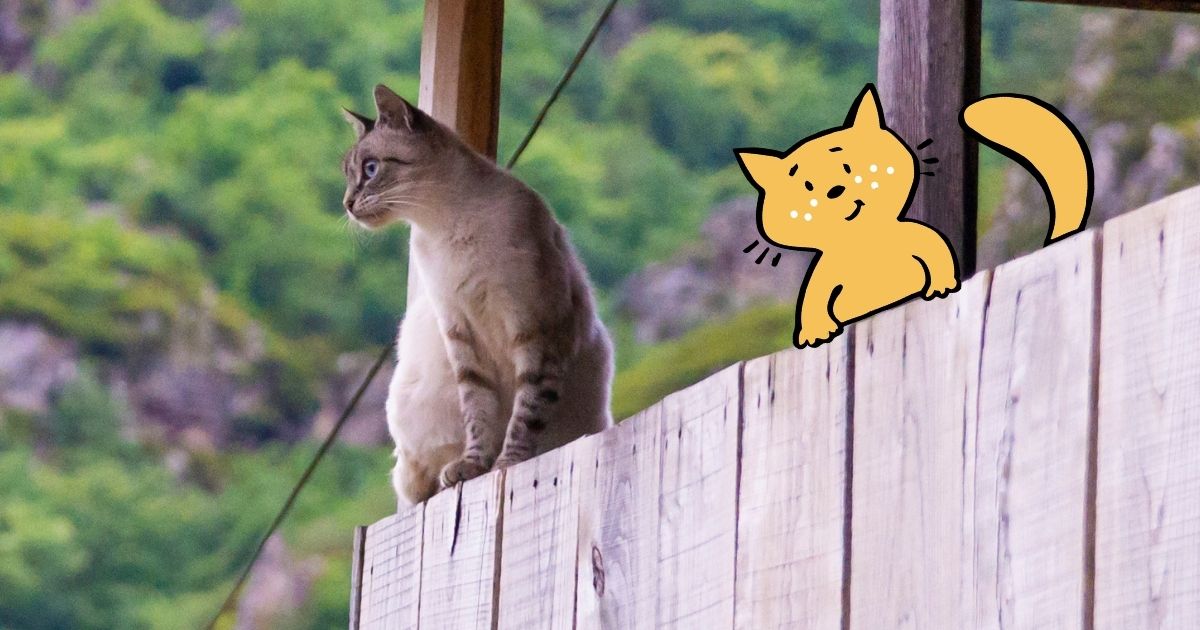
High Rise Syndrome in Cats: Understanding, Preventing, and Treating
December 29, 2023Cats are known for their agility, grace, and love for heights. Many cat owners can attest to seeing their feline companions perched on a windowsill or exploring the highest shelves in the house. However, this affinity for heights can sometimes lead to a dangerous condition called "High Rise Syndrome." This blog post will delve into what High Rise Syndrome is, who is most prone to it, the signs to look out for, what to do if you suspect your cat has experienced a fall, treatment options, and crucial prevention measures.
What is High Rise Syndrome?

High Rise Syndrome is a term used to describe the injuries sustained by cats after falling from a significant height, usually from a multi-story building or high-rise apartment. Cats are natural climbers, and their curiosity often leads them to explore elevated places. Unfortunately, their impeccable balance and agility are not immune to accidents when they misjudge a jump or slip from a ledge.
Who Are Most Prone to Getting High Rise Syndrome?
While any cat can potentially fall victim to High Rise Syndrome, certain factors may increase their risk:

- Young Cats: Kittens are more prone to accidents due to their boundless energy and curiosity.

- Unfamiliar Environment: Cats recently moved to a new location may be more prone to falls as they explore unfamiliar surroundings.

- Balconies and Open Windows: Cats with access to balconies or open windows are at higher risk, especially if safety precautions are not in place.

- High-Rise Dwellings: Cats living in high-rise apartments are more likely to face this danger due to the increased opportunity for falls from significant heights.
Take Immediate Action if Your Cat Falls
If you witness your cat falling from a significant height or suspect a bad fall, it's crucial to act swiftly:

- Check for Immediate Injuries: Approach your cat cautiously and check for any obvious signs of injury. Remember that cats may hide pain, so they could be injured internally even if they appear okay.

- Contact Your Veterinarian: Call your veterinarian or an emergency animal clinic immediately. Explain the situation and follow their guidance. Do not attempt to treat your cat's injuries without professional advice.
Signs of High-Rise Syndrome
Sometimes, the signs of High-Rise Syndrome may not be immediately evident. Cats are adept at masking discomfort or injury. Look out for the following signs that may indicate your cat has experienced a fall:
- Lethargy
- Lameness or limping
- Difficulty breathing
- Loss of appetite
- Vocalization (crying or meowing in distress)
- Swelling or bruising
- Changes in behavior (aggression, withdrawal)
What to Do After Suspecting High Rise Syndrome
If you suspect your cat has experienced a fall but aren't sure, it's still essential to take action:
Contact Your Vet
Reach out to your veterinarian to discuss your concerns and schedule an examination.
Observe Closely
Keep a close eye on your cat for any changes in behavior or physical condition. Document any unusual behavior or symptoms to share with the vet.
Treatment and Recovery
The treatment for High Rise Syndrome varies depending on the severity of the injuries. Common treatments may include:
- Pain management
- X-rays or imaging to assess internal injuries
- Surgery for broken bones or internal injuries
- Fluid therapy to treat shock or dehydration
- Antibiotics to prevent infections
Recovery time can also vary, with some cats needing weeks or even months to heal fully. Follow your veterinarian's instructions carefully and provide your cat with a comfortable and quiet recovery place.
How to Prevent High-Rise Syndrome
Preventing High Rise Syndrome is paramount for cat owners living in high-rise buildings. Here are some crucial preventive measures:

Secure Balconies and Windows
Install sturdy screens, grates, or protective barriers on balconies and windows to prevent cats from falling.

Supervise Outdoor Time
If you allow your cat outdoor access, ensure they are supervised or placed in a secure outdoor enclosure.

Nutritional Support
Consider adding salmon oil to your cat's diet. Salmon oil for cats is rich in omega-3 fatty acids, which offer various health benefits. By including salmon oil in their meals, you can help keep their joints supple and reduce the risk of injuries when they engage in daring high-rise adventures. Omega-3 fatty acids also have anti-inflammatory properties, which can aid in the recovery process if your cat does experience a fall-related injury.

Create a Safe Indoor Environment
Provide plenty of vertical spaces and entertainment for your cat indoors to satisfy their climbing instincts. Make sure to give them a safe space.

Leash Training
If you'd like your cat to experience the outdoors, consider leash training to keep them safe.

Regular Vet Check-Ups
Schedule regular check-ups with your veterinarian to catch and address any health issues early.
Conclusion
High Rise Syndrome is a severe and potentially life-threatening condition that can affect cats, particularly those living in high-rise buildings. By being aware of the risks, taking immediate action if an accident occurs, and implementing preventive measures, cat owners can help ensure the safety and well-being of their feline companions in urban environments. Always prioritize your cat's health and safety to enjoy a happy and healthy life together.
